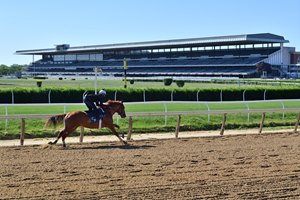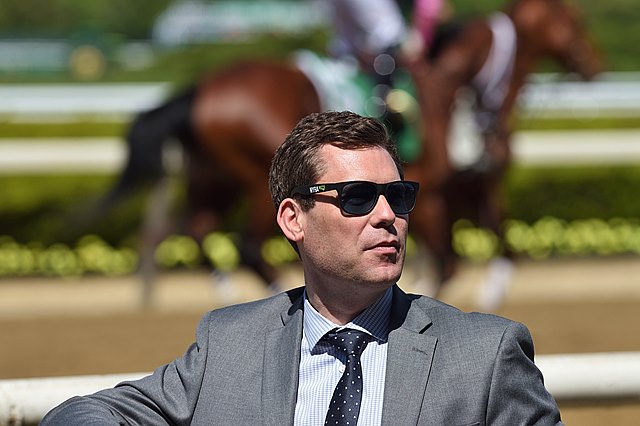NYRA to Reduce Race Days at Aqueduct, Belmont Park


The New York Racing Association, struggling under the financial weight of the COVID-19 pandemic's hit on its business, is planning to reduce race days this fall at Aqueduct Racetrack and Belmont Park in order to maintain the stability of the account that funds purses.
While account wagering and other off-track wagering is giving an overall bump in the total handle at the summer meet so far at Saratoga Race Course compared with 2019, NYRA also has lost a total of about 20% of its total race dates in 2020 and since mid-March has been without a key funding stream to fund purses: revenue sharing proceeds generated by the video lottery terminals at the Aqueduct casino.
On Aug. 18, NYRA executives told a state financial oversight panel that plans call for cutting 11 race days during the upcoming fall meets at Aqueduct and Belmont.
"We're kind of taking it on a meet-by-meet approach,'' NYRA president and CEO David O'Rourke told members of the New York State Financial Oversight Board in a phone conference meeting Tuesday.
O'Rourke said decisions about racing during the Aqueduct winter meet have not yet been made.
"It's just too early right now to start laying out what that schedule will look like. Hopefully, it's normal. I'm still looking for the definition of normal right now,'' O'Rourke told the state panel members.

NYRA officials told the state board, known as FOB, that year-to-date all source handle totaled $747 million in the first six months of the year, off $265.3 million from the same period in 2019.
Robert Williams, head of the FOB and executive director of the New York State Gaming Commission, wondered about NYRA's cash flow situation if VLTs are not re-started soon at the Aqueduct casino.
"How long can you operate?" Williams asked.
"We still have cash at the end of 2021,'' responded Renee Postel, NYRA's chief financial officer.
In a subsequent interview, O'Rourke said NYRA expects to end the year in a "solidly liquid position."
NYRA has three basic components of liquidity: operating funds, capital funds, and purse accounts. NYRA has reduced purse levels but not fully to compensate for the loss of the VLT proceeds.
"We're comfortable that we're viable, but each month you push out in 2021 it gets harder to project,'' O'Rourke said. Besides the loss of VLT funds and race date cancellations earlier this spring due to COVID-19, NYRA has also been operating without spectators this summer at Saratoga, its prime revenue-raising period of the year.
NYRA has been in discussions with the New York Thoroughbred Horsemen's Association about the fall race dates, officials said. O'Rourke said NYRA is looking to keep intact the normally best-performing race days during the upcoming fall meets to create a balance and, "to offer enough opportunities to stay in business while preserving as much liquidity on the purse side as possible.''
NYRA officials told the state panel that there are presently no cases of COVID-19 by any people working or living at both Saratoga and Belmont. Glen Kozak, senior vice president of operations and capital projects at NYRA, said there was a point—he did not say precisely when—that between 15 to 18 people were quarantined earlier this year at Belmont. At the high point, he said, 16 people at Belmont tested positive for the virus.
Williams told the NYRA officials that "clearly you've done nicely with cash management" since the COVID-19 pandemic hit.
"Your projection through the end of December is a loss but it's not as substantial as it possibly could be. It looks like once you get through August you're through the worst of it,'' Williams said.
NYRA has canceled a total of 43 race days due to the pandemic in 2020, officials said Tuesday. NYRA reported its operating loss in the second quarter of 2020 from racing operations was $6.7 million, which was $8.6 million lower than the projected gain of $1.8 million. NYRA has slashed labor and capital costs to try to maintain its liquidity.
On the positive side, officials said pent-up demand helped drive enrollment in its NYRA Bets wagering program by 200% so far this year over 2019. In the second quarter, NYRA said 25,000 people activated accounts with NYRA Bets, compared with 6,000 the racing corporation budgeted would occur in the three-month period.
O'Rourke said customers seem to be coming from a broader base and they are remaining signed up with NYRA Bets longer.
"So far it's very positive so far in terms of broadening our customer base. It's one of the better stories,'' O'Rourke said of NYRA's operation during a pandemic.
